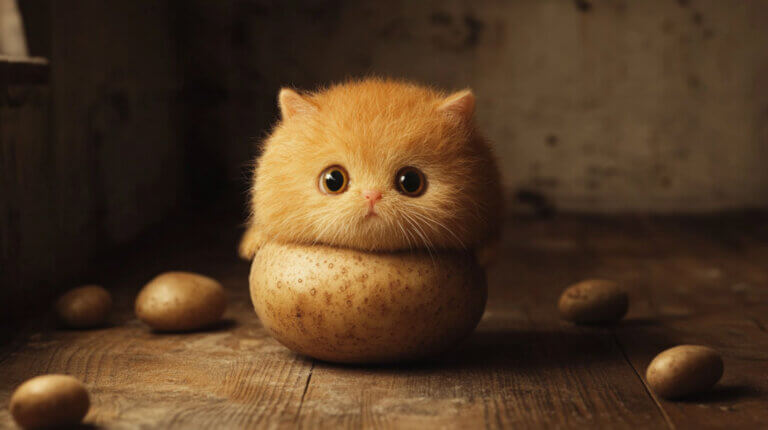 How Potato Cat transforms NFT trading with innovative swap engine: Interview
How Potato Cat transforms NFT trading with innovative swap engine: Interview How Potato Cat transforms NFT trading with innovative swap engine: Interview
With partnerships across key NFT communities, Potato Cat introduces community-specific swapping tools for fair deals.

Cover art/illustration via CryptoSlate. Image includes combined content which may include AI-generated content.
In the ever-evolving world of NFTs, the Solana blockchain has become a hotspot for innovation, attracting developers and traders alike with its fast and low-cost transactions. One of the standout projects making waves in this space is Potato Cat, a novel platform designed to revolutionize how users trade and manage their NFT portfolios.
In this exclusive Q&A, we sit down with John Ennis, the creator of Potato Cat, to explore the inspiration behind the platform, the cutting-edge technology driving its proposal engine, and its ambitious plans to transform the NFT trading landscape.
From addressing the challenges of bid/ask spreads to introducing unique features like trait-based distinctions and reward incentives, Ennis shares how Potato Cat aims to create a seamless and efficient marketplace for NFT swaps. Whether you’re a seasoned trader or a curious newcomer, Potato Cat promises to offer innovative solutions that could reshape your NFT experience on Solana.
Interview with John Ennis, Tulle Co-founder and CEO
What inspired you to create Potato Cat, and how does it address the current challenges in NFT trading on Solana?
Most NFT traders and collectors don’t appreciate just how much money they lose when crossing the bid/ask spread when trading NFTs. With Potato Cat, we help our users avoid this spread crossing to realize significant savings by helping to matchmake users with complementary interests. Right now, people trying to avoid the spread do so through traditional OTC swaps, however finding people with whom to trade is time consuming and still requires negotiating a deal that is acceptable to both sides. At Potato Cat, we remove this friction to create a “marketplace of swaps.”
Can you explain the technology behind Potato Cat's proposal engine and how it determines fair deals for NFT swaps?
Our proposal engine analyzes the onchain orderbooks of existing NFT marketplaces to determine a fair deal for both sides, then shows users the savings they will realize compared to selling and then buying on the open market.
How do you envision Potato Cat transforming how users manage and reposition their NFT portfolios?
As Potato Cat evolves, users will be able to state their goals in increasingly more general terms, and Potato Cat will matchmake for them automatically, allowing them to reposition their portfolio with maximum savings and minimal friction.
What are the key benefits of using Potato Cat compared to traditional NFT marketplaces?
Potato Cat is a new type of NFT marketplace that can be best considered as a “marketplace of swap.” It sits between a traditional marketplace like Tensor and a pure OTC swap platform like FoxySwap to provide the low-friction of a marketplace with the savings of an OTC swap platform.
Could you elaborate on the concept of "Potatoes" and how they incentivize early adopters of the platform?
Potatoes are our reward points, and we plan to launch a Potato memecoin token in the future to add an element of fun to our platform.
How does Potato Cat plan to incorporate trait-based distinctions for NFTs in future updates?
Just as we currently work out fair deals for both side when swapping between collections at floor prices, we are in the process of implementing trait-based deals into our platform. This system functions similarly to our floor-based swapping, in that we analyze the marketplace orderbooks to determine what a fair deal would be to both sides of the swap, and show them how much money they would save through the direct swap when compared to buying and selling through traditional marketplaces to accomplish the same goals.
Can you discuss some of the partnerships Potato Cat has formed with major projects like Mad Lads and Backpack, and how these collaborations benefit users?
We have been fortunate to forge partnerships with many of the top NFT communities on Solana, including Mad Lads, MonkeDAO, the Tensorians, Claynosaurz, Chads, and more. Members of these communities receive Potato boosts and will soon have access to community-specific swapping tools that take traits into account when finding fair swaps. Backpack users also receive Potato boosts, and we hope to one day incorporate Potato Cat’s swapping capabilities directly into Backpack.
What measures has Potato Cat implemented to ensure the security and fairness of NFT swaps on the platform?
The fairness of swaps is determined by analysis of marketplace orderbooks, as discussed above. Our smart contracts have previously been audited by Quantstamp, and a version of our multi-way swapping contract has been open-sourced thanks to a grant from the Solana Foundation.
How do you see Potato Cat evolving in the next year, and what new features can users expect?
As mentioned above, we expect the expression of user intents to become more and more general, with recommendations provided based on an analysis of user activity both on our platform and based on on-chain analysis. We also expect the interaction to become lower friction, with the use of a chatbot powered by Tulle, to help the user better understand their goals and make on-chain commitments more easily.
As the founder, what's your long-term vision for Potato Cat's role in the Solana NFT ecosystem?
Potato Cat is unique in web3 as it is the only swapping product of its type. We would love to see the technology under the hood at Potato Cat, built by our parent company, Tulle, to be ubiquitous throughout the ecosystem, helping matchmake users directly. The vision here is a new type of commerce that is more efficient and requires significantly less currency to function. Interested readers can learn more about Tulle’s vision at https://tulle.cc/thesis.
Connect with John Ennis
Doctor John Ennis is the founder of Tulle, which provides novel economic efficiency tools to their partners on Bitcoin and Solana.





 Deribit
Deribit 















































































